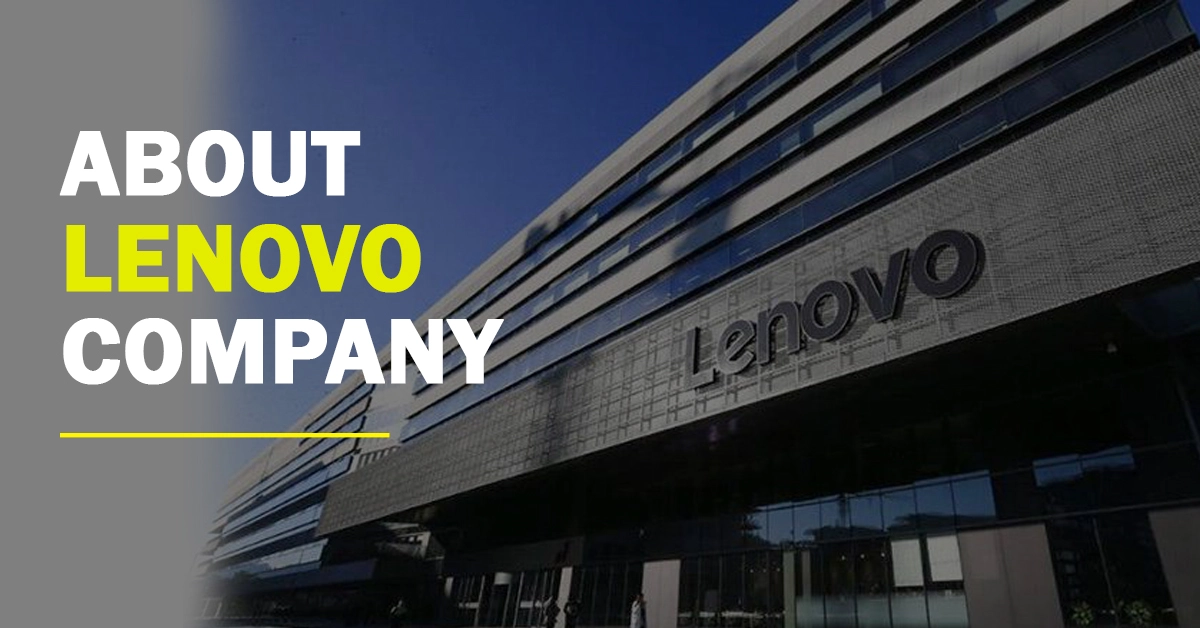
Table of Contents
ToggleAbout Lenovo Company
Lenovo is a Chinese multinational technology company that was founded in 1984 as Legend Group. It famous for laptopsIt is headquartered in Beijing, China, and operates in over 60 countries worldwide.
Initially, Lenovo focused on selling IBM-compatible personal computers in China, where it quickly became a market leader. In 1992, the company introduced the first Chinese-made computer and launched the Legend brand. By the late 1990s, Legend Group had become the largest computer maker in China, and in 2003, it acquired IBM’s PC business, making it the third-largest personal computer company in the world.
Following the acquisition of IBM’s PC business, Legend Group changed its name to Lenovo and expanded its product line to include smartphones, tablets, and servers. In 2014, Lenovo acquired Motorola Mobility from Google, further expanding its presence in the smartphone market.
Today, Lenovo is one of the world’s largest PC makers and a leading provider of mobile devices, including smartphones and tablets. The company has also expanded into other areas, such as smart home devices and artificial intelligence.
Despite its success, Lenovo has faced some controversies over the years, including allegations of using substandard materials in its products and concerns over its relationship with the Chinese government. However, the company continues to be a major player in the technology industry and has a strong global presence.
History Of Lenovo Company
- 1984: Foundation – Lenovo, initially called “Legend,” was founded by Liu Chuanzhi and a group of 10 engineers in Beijing. The company’s initial focus was on importing and distributing computer components and telecommunication equipment.
- 1990: Domestic PC market – Lenovo entered the domestic personal computer market, launching its first homegrown PC. By 1996, Lenovo became China’s top-selling PC brand.
- 2003: Name change – Legend changed its name to Lenovo in order to establish a global brand presence. The name “Lenovo” is a portmanteau of “Le” (from “Legend”) and “novo,” which means “new” in Latin.
- 2005: Acquisition of IBM’s PC division – In a landmark deal, Lenovo acquired IBM’s personal computer division, including the well-known ThinkPad line of laptops. The acquisition helped Lenovo expand its international presence and boost its competitiveness in the global PC market.
- 2011: Expansion into smartphones – Lenovo entered the smartphone market with the launch of its LePhone series. The company’s focus on innovation and aggressive pricing strategies allowed it to quickly gain market share in China and other emerging markets.
- 2014: Acquisition of Motorola Mobility – In a bid to expand its global smartphone presence, Lenovo acquired Motorola Mobility from Google. This acquisition gave Lenovo ownership of Motorola’s portfolio of smartphones, including the popular Moto and DROID series.
- 2014: Acquisition of IBM’s x86 server business – Lenovo further expanded its product portfolio by acquiring IBM’s x86 server business, strengthening its position in the enterprise market.
- 2016: Launch of Yoga series – Lenovo introduced the Yoga series of convertible laptops and tablets, which have become well-known for their innovative design and versatility.
Features Of Lenovo Laptops
Lenovo laptops are known for their durability, reliability, and performance. Here are some common features you can expect to find in Lenovo laptops:
- Build quality: Lenovo laptops are typically well-built with a sturdy design that can withstand wear and tear.
- Processor: Lenovo laptops come with powerful processors, including Intel Core i5 and i7 and AMD Ryzen, that can handle heavy workloads with ease.
- Display: Lenovo laptops are available in a range of screen sizes, from 11 inches to 17 inches, with Full HD and 4K resolution options.
- Battery life: Lenovo laptops are known for their long battery life, with some models lasting up to 14 hours on a single charge.
- Keyboard: Lenovo laptops feature comfortable, ergonomic keyboards that make typing easy and efficient.
- Security: Many Lenovo laptops come equipped with biometric security features, such as fingerprint readers, for added security.
- Connectivity: Lenovo laptops offer a range of connectivity options, including USB-C, HDMI, Ethernet, and Wi-Fi, to keep you connected wherever you go.
- Graphics: Lenovo laptops are available with integrated or dedicated graphics, depending on your needs.
- Software: Lenovo laptops come with a range of pre-installed software, including the Lenovo Vantage app, which allows you to manage and optimize your laptop’s performance.
Overall, Lenovo laptops are known for their performance, durability, and range of features, making them a popular choice for both personal and professional use.
Lenovo's Global Market Presence And Success
Lenovo has achieved significant global market presence and success over the years, thanks to a combination of strategic acquisitions, innovation, and effective marketing strategies. The company’s rapid growth can be attributed to several factors:
- Acquisition of IBM’s PC division: Lenovo’s acquisition of IBM’s personal computer division in 2005, including the ThinkPad line of laptops, was a turning point for the company. It not only expanded its product offerings but also enabled the company to establish a strong foothold in the international market.
- Strong presence in emerging markets: Lenovo has focused on catering to emerging markets, such as China, India, and Brazil, where the demand for personal computers and smartphones has been growing steadily. This focus on emerging markets has allowed Lenovo to tap into the growth potential of these regions, resulting in increased market share.
- Innovation and product differentiation: Lenovo has consistently invested in research and development to bring innovative products to market. The company’s Yoga series of convertible laptops and tablets, for example, has gained widespread recognition for its unique design and versatility. Lenovo’s emphasis on innovation has helped it stand out in the competitive technology market.
- Competitive pricing: Lenovo has been able to maintain a competitive edge by offering high-quality products at affordable prices. This has been particularly important in emerging markets, where price-sensitive consumers often prioritize affordability when making purchasing decisions.
- Strategic acquisitions: In addition to acquiring IBM’s PC and x86 server divisions, Lenovo also acquired Motorola Mobility in 2014, further expanding its product portfolio and market presence in the global smartphone market.
- Brand building and marketing: Lenovo has worked to build a strong global brand through targeted marketing efforts and high-profile sponsorships, such as being the official computer supplier for the International Olympic Committee. The company has also engaged in various marketing campaigns and collaborations to increase brand awareness and customer engagement.
As a result of these strategies, Lenovo has established itself as one of the leading technology companies in the world. According to market research firm IDC, as of the fourth quarter of 2020, Lenovo was the largest PC vendor globally, with a market share of 25.2%. The company also ranks among the top five smartphone manufacturers in the world. Lenovo’s continued focus on innovation, strategic acquisitions, and expansion into new markets is expected to drive its success in the future.
Lenovo's Partnership
Lenovo has pursued a growth strategy involving several major acquisitions and partnerships over the years. These strategic moves have helped the company expand its product offerings, increase its global presence, and strengthen its competitive position in the technology market. Here are some of the most notable acquisitions and partnerships in Lenovo’s history:
- Acquisition of IBM’s PC division (2005): This landmark acquisition allowed Lenovo to enter the global personal computer market and gain access to IBM’s popular ThinkPad line of laptops. The deal also helped establish Lenovo as a major player in the international technology market.
- Joint venture with NEC Corporation (2011): Lenovo formed a joint venture with Japanese electronics company NEC Corporation, creating NEC Lenovo Japan Group. This partnership aimed to strengthen both companies’ presence in the Japanese PC market and leverage their combined resources to develop innovative products.
- Acquisition of Medion (2011): Lenovo acquired Medion, a German electronics company, to expand its presence in the European market. The acquisition enabled Lenovo to broaden its product offerings and tap into Medion’s established distribution channels in Europe.
- Acquisition of CCE (2012): Lenovo acquired CCE, a leading Brazilian electronics manufacturer and distributor, to increase its presence in the fast-growing Brazilian PC and smartphone markets.
- Acquisition of Stoneware (2012): Lenovo acquired Stoneware, a US-based provider of cloud computing solutions, to enhance its cloud computing capabilities and expand its software portfolio.
- Acquisition of Motorola Mobility (2014): Lenovo acquired Motorola Mobility from Google to strengthen its position in the global smartphone market. The acquisition provided Lenovo with access to Motorola’s portfolio of smartphones, including the popular Moto and DROID series.
- Acquisition of IBM’s x86 server business (2014): Lenovo acquired IBM’s x86 server business to expand its presence in the enterprise market. The acquisition allowed Lenovo to offer a more comprehensive product portfolio for businesses and data centers.
- Partnership with Google (2016): Lenovo partnered with Google to develop the world’s first Tango-enabled smartphone, the Lenovo Phab2 Pro. The partnership showcased Lenovo’s commitment to innovation and collaboration with industry leaders.
These acquisitions and partnerships have played a crucial role in Lenovo’s growth and success in the global technology market. By expanding its product portfolio and market presence, Lenovo has been able to compete more effectively with other major players in the industry.
The Evolution Of Lenovo Laptops
The evolution of Lenovo laptops can be traced back to the acquisition of IBM’s PC division in 2005. Since then, Lenovo has built upon the foundation of IBM’s iconic ThinkPad series, while also introducing new lines of laptops that cater to different customer segments. Here’s a brief overview of the evolution of Lenovo laptops:
- ThinkPad series (1992-present): The ThinkPad series, originally developed by IBM, has been a mainstay of Lenovo’s laptop lineup since the acquisition. Known for their durability, performance, and reliability, ThinkPads have been popular among business professionals and power users. Lenovo has continued to improve and expand the ThinkPad series, introducing new models with advanced features such as touchscreens, biometric security, and lightweight designs.
- IdeaPad series (2008-present): Lenovo introduced the IdeaPad series as a consumer-oriented counterpart to the ThinkPad line. IdeaPad laptops typically feature sleek designs, vibrant displays, and multimedia capabilities that appeal to a wide range of users. Over the years, the IdeaPad series has expanded to include various sub-series, such as the S, Y, and Z series, catering to different customer needs and preferences.
- Yoga series (2012-present): The Yoga series is a line of convertible laptops and tablets known for their innovative design and versatility. Yoga devices feature a 360-degree hinge that allows the screen to fold back completely, transforming the laptop into a tablet. This unique design has earned the Yoga series widespread recognition and popularity among consumers seeking a flexible, multi-purpose device.
- Legion series (2017-present): The Legion series is Lenovo’s dedicated gaming laptop line, designed to cater to the growing gaming community. Legion laptops offer powerful performance, advanced graphics capabilities, and customizable features that appeal to gamers seeking high-performance devices.
- ThinkBook series (2019-present): The ThinkBook series is a line of laptops aimed at small and medium-sized businesses. These devices combine the performance and reliability of the ThinkPad series with the stylish design and multimedia features of the IdeaPad series, offering a well-rounded option for business users.
Throughout the years, Lenovo has consistently evolved and expanded its laptop offerings to cater to a wide range of users, from business professionals and power users to casual consumers and gamers. The company’s focus on innovation, performance, and design has helped it establish a strong presence in the global laptop market and maintain its position as one of the leading laptop manufacturers in the world.
Key Features In Lenovo Laptops
Lenovo laptops have consistently incorporated cutting-edge features and technologies to cater to the needs of various users, from business professionals to casual consumers and gamers. Here are some key features and technologies found in Lenovo laptops:
- Convertible design (Yoga series): Lenovo’s Yoga series features a unique 360-degree hinge that allows users to fold the screen back completely, transforming the laptop into a tablet. This versatile design enables multiple usage modes, such as laptop, tablet, tent, and stand modes, providing flexibility for various computing needs.
- TrackPoint: A signature feature of the ThinkPad series, the TrackPoint is a small red pointing device located in the center of the keyboard. It allows users to control the cursor without having to move their hands away from the keyboard, improving productivity and user experience.
- Biometric security: Many Lenovo laptops incorporate biometric security features, such as fingerprint readers and facial recognition, to enhance data protection and user authentication. These security features provide a convenient and secure way to access the device without relying solely on passwords.
- Dolby Audio and Dolby Vision: Lenovo laptops often come equipped with Dolby Audio and Dolby Vision technology, providing immersive audio and vibrant display experiences. These technologies enhance multimedia capabilities, making Lenovo laptops suitable for entertainment and content consumption.
- Rapid Charge technology: Lenovo’s Rapid Charge technology enables fast battery charging, providing users with the ability to quickly recharge their devices in a short period. This feature is particularly useful for on-the-go users who need to minimize downtime between charges.
- Cooling solutions: Lenovo laptops, especially the Legion series, incorporate advanced cooling solutions to manage heat effectively during intense workloads or gaming sessions. These cooling technologies help maintain optimal performance and prolong the lifespan of internal components.
- Thunderbolt ports: Many Lenovo laptops come equipped with Thunderbolt ports, which provide fast data transfer speeds and support for connecting multiple peripherals simultaneously. Thunderbolt ports enable users to connect high-resolution displays, external storage devices, and other peripherals for enhanced productivity.
- MIL-STD-810G certification: Some Lenovo laptops, particularly the ThinkPad series, are designed to meet the rigorous MIL-STD-810G military standard for durability and reliability. These laptops undergo a series of tests to ensure they can withstand extreme conditions, such as high and low temperatures, humidity, vibration, and shock.
Lenovo’s focus on incorporating advanced features and technologies in its laptops has helped the company maintain a strong reputation for performance, innovation, and reliability. By addressing the needs of various user segments, Lenovo continues to be a major player in the global laptop market.
Key Features And Technologies In Lenovo Laptops
Lenovo laptops, especially the ThinkPad and ThinkBook series, offer a range of security features aimed at addressing the needs of business users. These features help protect sensitive data, enhance user authentication, and ensure compliance with corporate security policies. Some of the key security features in Lenovo laptops for business users include:
- Fingerprint reader: Many Lenovo laptops come with a built-in fingerprint reader, which allows users to authenticate their identity quickly and securely. This biometric security feature reduces the reliance on passwords and enhances overall device security.
- Windows Hello facial recognition: Some Lenovo laptops support Windows Hello facial recognition, which uses infrared camera technology to identify users and grant access to the device. This feature provides a convenient and secure authentication method without the need for a password.
- Trusted Platform Module (TPM): TPM is a hardware-based security feature that helps protect sensitive data by storing encryption keys, passwords, and certificates securely. This feature ensures that critical data remains protected even in the event of a security breach or physical theft of the device.
- BIOS-based security: Lenovo laptops feature various BIOS-level security options, such as Computrace for asset tracking and recovery, Secure Boot to prevent unauthorized booting, and Intel vPro technology for remote management and security. These features help protect the device at the hardware level and facilitate compliance with corporate security policies.
- PrivacyGuard screen technology: Some Lenovo laptops offer PrivacyGuard, a built-in screen privacy feature that narrows the viewing angle of the display. This technology helps protect sensitive information from prying eyes, especially when working in public spaces or crowded environments.
- PrivacyAlert: In conjunction with PrivacyGuard, PrivacyAlert is a software feature that uses the laptop’s infrared camera to detect if someone is looking over your shoulder. If detected, the software alerts the user, and PrivacyGuard can be activated to protect the screen contents.
- Kensington lock slot: Many Lenovo laptops come with a Kensington lock slot, which allows users to physically secure the device with a compatible lock. This feature helps deter theft and protect the device in public or shared workspaces.
- Secure Erase: Lenovo laptops support Secure Erase, a feature that allows users to completely and securely wipe the data on SSD drives. This feature is particularly useful when decommissioning a device or ensuring that sensitive data does not fall into the wrong hands.
These security features, combined with Lenovo’s commitment to durability and reliability, make Lenovo laptops an ideal choice for business users seeking secure and reliable computing solutions.
Software And Operating System Options Of Lenevo Laptops
Lenovo laptops offer a variety of software and operating system options to cater to the diverse needs of users, from home users to professionals and businesses. Some of the key software and operating system options available on Lenovo laptops include:
- Operating Systems: a. Windows: Most Lenovo laptops come pre-installed with Microsoft Windows, the most widely used operating system for personal computers. Windows offers a familiar user interface, extensive compatibility with software and hardware, and regular updates to improve performance and security. Depending on the device, Lenovo laptops may come with Windows 10 or the latest version, Windows 11. b. Linux: Some Lenovo laptops, particularly in the ThinkPad series, offer Linux-based operating system options such as Ubuntu or Fedora. Linux is an open-source operating system known for its stability, security, and flexibility, making it a popular choice among developers and advanced users.
- Pre-installed Software: a. Lenovo Vantage: Lenovo Vantage is a pre-installed software application that serves as a centralized hub for device management, including hardware diagnostics, system updates, and personalized settings. This software helps users optimize their device’s performance, troubleshoot issues, and access support resources. b. Microsoft Office: Many Lenovo laptops come with a trial version of Microsoft Office, allowing users to test the popular productivity suite before deciding to purchase a subscription. Microsoft Office includes widely-used applications such as Word, Excel, PowerPoint, and Outlook. c. McAfee LiveSafe: Some Lenovo laptops include a trial version of McAfee LiveSafe, a comprehensive security software that offers antivirus protection, identity protection, and secure browsing features. Users can choose to continue using the software by purchasing a subscription after the trial period ends.
- Additional Software Options: a. Lenovo ReadyComm: This software suite, available on select Lenovo laptops, is designed to simplify and enhance network connectivity, providing users with easy access to Wi-Fi, Bluetooth, and mobile broadband connections. b. Dolby Atmos and Dolby Vision: Some Lenovo laptops come with Dolby Atmos audio enhancement and Dolby Vision display technology, providing users with immersive audio and vibrant visuals for a better multimedia experience.
These software and operating system options provide users with the flexibility to choose the right combination of features and capabilities for their specific needs. By offering a variety of options, Lenovo caters to a wide range of users, from casual home users to professionals and businesses.







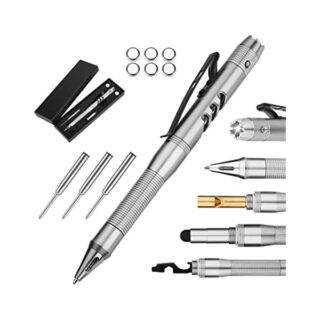

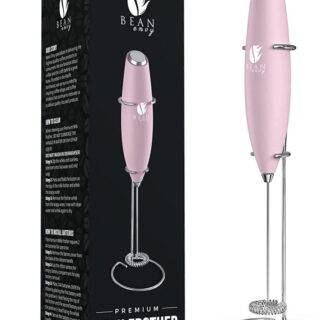



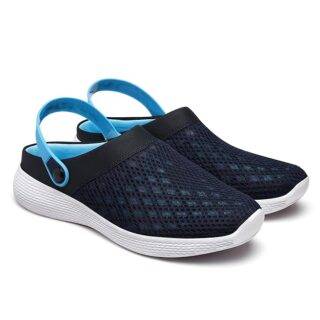

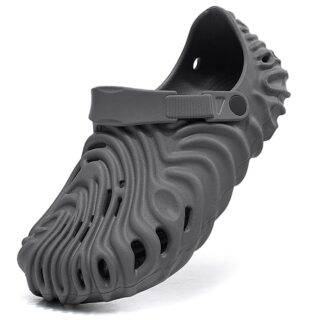
Leave a Reply